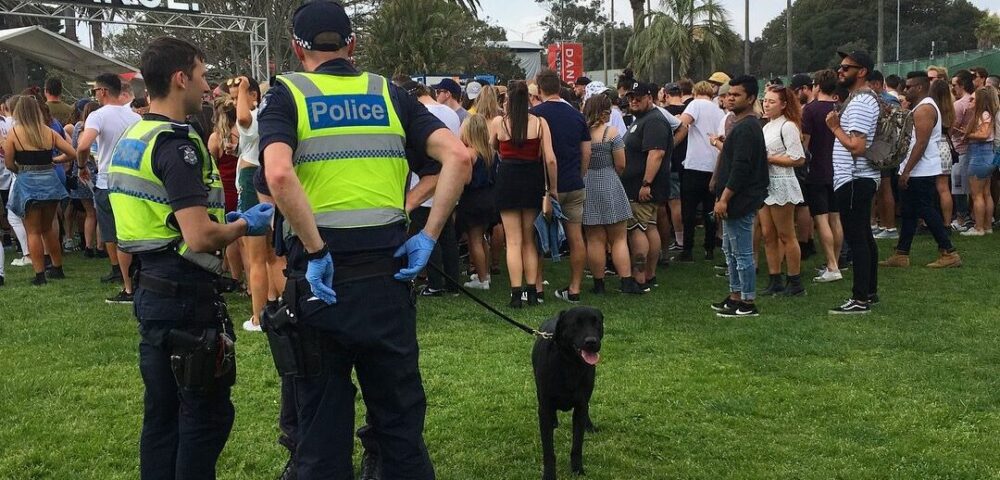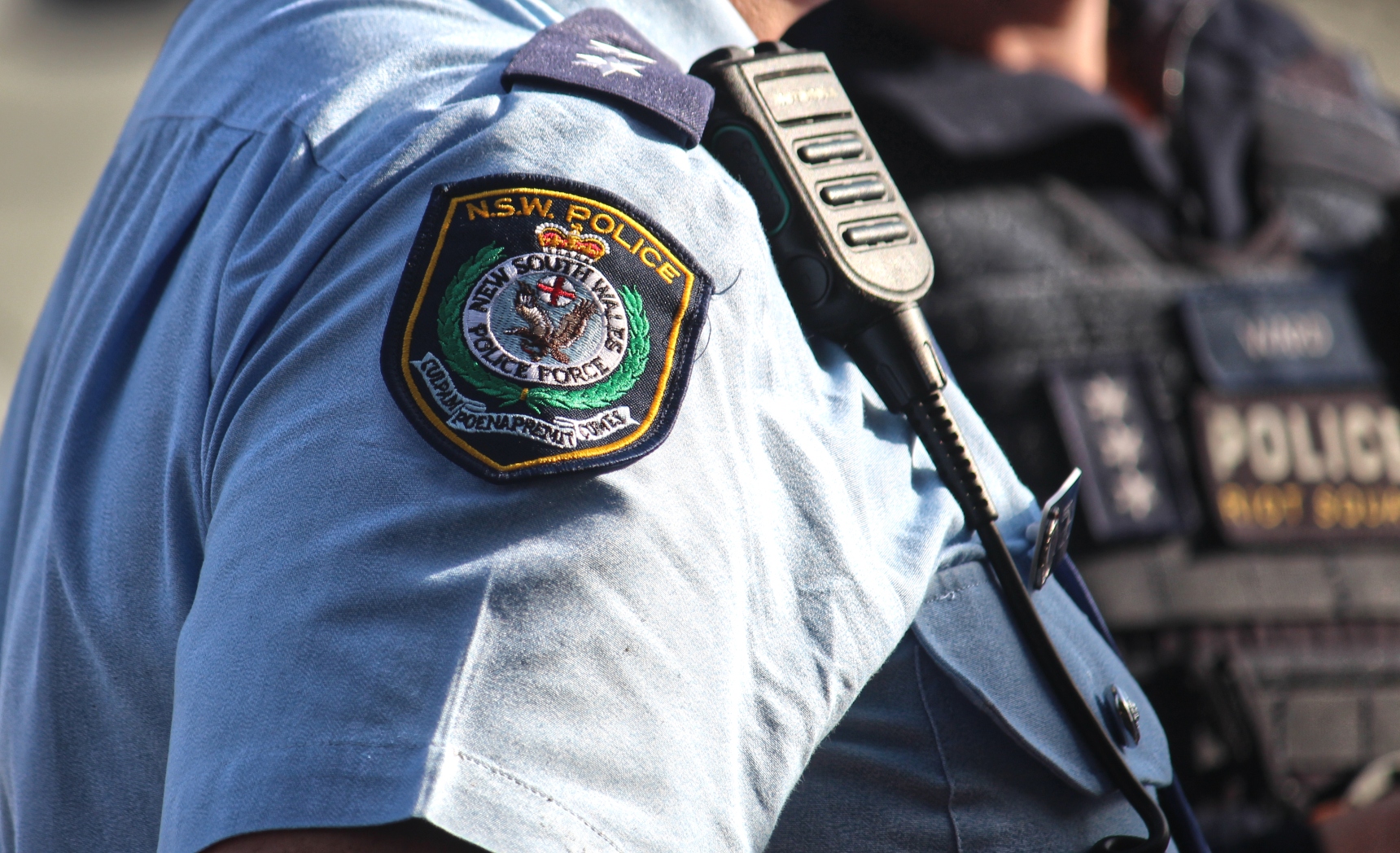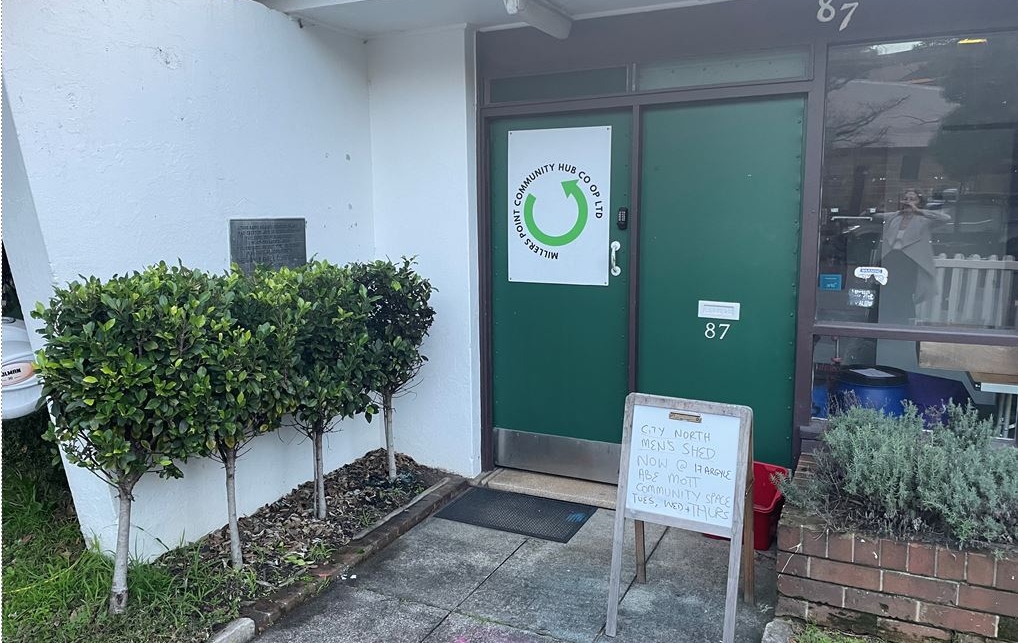

By JUSTIN COOPER
With the music festival season beginning this weekend in Sydney, concern has risen surrounding NSW Government’s management of illicit drug and substance harm.
The latest report from Law Enforcement Conduct Commission (LECC) on NSW Police Strip Searches at recent music festivals, reveals the mismanagement of strip searching policies and the subsequent inefficiencies of sniffer dogs.
Activists are now calling upon the government to reconsider the 2019 Ice Inquiry recommendations, pushing for pill testing clinics and additional educational services.
“More harm than good”
Parliamentary records obtained by Sydney Morning Herald from NSW Greens MP Cate Faehrmann, found the average success rate of sniffer dogs is 25 percent over the past 10 years.
The found 2014 to be the worst year for sniffer dog success, with only 21 percent of the 14,213 searches finding illicit substances.
In recent years, the success rate has not seen a considerable rise. This year, recorded up till June 30, only 29 percent of the 4006 searches identified drug substances.
Speaking with City Hub, Greens’ Drug Law Reform & Harm Reduction spokesperson Faehrmann, explains the decline in sniffer dog efficiency as “causing more harm than good.”
“It [the report] reveals that tens of thousands of people have been subjected to humiliating and degrading strip searches in this state over the past decade, most of whom have no drugs on them,” says Faehrmann.
Faehrmann notes that sniffer dogs are considered successful even when drugs are not found, but if the person searched admits to previously using or having been around drugs recently.
“How is it in any way useful information for the police to know if someone may have been around illegal drugs recently,” Faehrmann continues
“This is harassment, plain and simple and shows just how much the police are trying to justify the whole disgraceful, wasteful program.”

Labelling the program an “unacceptable risk,” Faehrmann refers to the 2019 Coronial Inquest into the death of six patrons of NSW music festivals and 2020 ‘Ice’ Inquiry, which recommends the removal of drug detection dogs.
Concerns following strip search policies
Furthermore, the latest and second LECC report into NSW Police strip search report records reveal the number of officers not properly trained or not taking the standardised considerations to the searching process.
The report revealed less than half (47 percent) of police records had completed the relevant music festival training in the allocated time frame.
Furthermore, only 35% of officers kept consistent with NSW Police Force policy search standards, with 30% reflecting the adequate considerations to properly legally justify the strip search.
“It’s outrageous that less than one in three police officers is following the rules for protecting privacy and dignity in strip searches,” said Faehrmann, in a previous statement addressing the LECC report.
“What we’ve learned from the new report is that it doesn’t matter what these standards are, or what police are required to do, because most aren’t even turning their mind to it before demanding a search,” Faehrmann continued.
Speaking with City Hub, Faehrmann pushes for the consideration of pill testing at music festivals in “prioritising harm reduction and education,” rather than “the same failed zero-tolerance approach.”
“Countless experts have said that this over-the-top policing could be causing more harm than the drugs themselves,” says Faehrmann.
Faehrmann notes the success of pill testing in Queensland and ACT. Specifically referencing the ACT where there has been no deaths where pill testing was provided, with the territory now “operating extremely [successful]” fixed drug checking services.
Success in peer education
With pill testing, strengthening drug education programs and services has been a strong recommendation within the Coronial Inquest and ‘Ice’ Inquiry.
Organisations, including Dancewize NSW, have attended and worked with festival organisers to provide community education on drug use and harm.
Spokesperson for Dancewize NSW Tim Powell discussed the significance of their programs with City Hub, recognising the success of Key Peer Educators (KPEs) in educating festival goers.
“Our KPEs come directly from the festival scene, bringing their own lived and living experience into their work,” says Powell.
“This means they are relatable, approachable, and trustworthy to the community we service. Through a combination of their personal experiences and specialised training, our team is highly effective at harm-reduction by authentically connecting with patrons,” Powell explains.

Since starting in 2017, Powell says the organisation has interacted with over 430,000 festival patrons, providing over 37,000 with alcohol and drug harm reduction education and assisting approximately 3,000 patrons at their care spaces.
“In the last year, the first full festival season since Covid-19, we provided care for 692 patrons. We referred 100 of those to medical units and had 128 patrons referred from medical to us,” Powell continues.
“These figures demonstrate how peer-driven harm-reduction initiatives are vital to creating safe and successful festivals,” says Powell.
Powell notes the organisations support of the 2019 Coronial Inquest recommendations, steering drug harm reduction approaches towards “on-site drug checks… peer-based service enhancement, and adequate training for police that emphasise harm-reduction.”
“The Victorian State Coroner has made similar recommendations and the Queensland Government has already moved to implement pill-testing following the ACT’s successful fixed-site drug-checking trial,” says Powell.
“We recognise the invaluable efforts by both governmental and non-governmental bodies in advancing festival safety and remain committed to this collective goal,” Powell continues.
With Listen Out and Knockout (which Dancewize will be attending) starting this weekend, NSW’s start to music festival season is seemingly beginning with concern.









